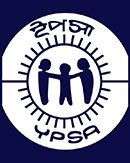Project Duration: January 2024 – November 2025
Implemented by: YPSA -Young Power in Social Action
Funded by: Pathfinder International
Purpose of the Project:
Providing women and girls health, SRHR, FP, WASH, gender and GBV, climate resilience, and climate adaptive livelihood information and services that complement the public sector services.
Project Objective:
- Empower women and girls in low resource communities with the tools, knowledge, networks and resources to survive and thrive through today and tomorrow’s health needs and crises.
- Build resilient, adaptable quality health systems able to meet the primary health needs of low-resource communities and withstand emergency shocks.
Geographical Coverage:
5 Upazila in Cox’s Bazar District. (Cox’s Bazar Sadar, Chakaria, Kutubdia, Teknaf, and Moheshkhali Upazila)
Major Activity:
- Update and develop guideline for training
- Update flipchart on health, SRHR, FP, WASH, gender and GBV, climate resilience and climate adaptive livelihood
- Engage Community outreach worker for conducting community level activities
- Identify resilience volunteers as change maker towards climatic vulnerabilities
- 5.Volunteer group formation meeting
- Quarterly meeting with Volunteer groups
- Capacitate resilience volunteers as change maker towards climatic vulnerabilities
- Gender transformative trainings for health professionals at Upazila level
- Innovative digital health and technology connections to health services
- Engaging women groups through different knowledge transforming sessions on Health, SRHR, Nutrition, WASH, Gender-GBV Climate adaptive livelihoods etc
- Conduct inception and sensitization meeting with authorities and teachers of selected schools for implementing project activities
- 12.Form School Disaster Management Committee and develop their capacity on DRR and climate change induces vulnerability and Risk
- School disaster management committee (SDMC) formation meeting
- Training with SDMC
- Organize workshop on the School Safety Plan development
- Quarterly meeting with SDMC
- Support schools for implement small scale mitigation plan as per school safety plan
- Empower Student council (SC) with climate change induces vulnerabilities and risk, SRHR, SGBV related issues through school programming
- Identify and Train the community-based organizations (CBOs), women’s group on crisis resilient livelihoods and preparation of household level contingency plans following the RRAP
- Identify issue-based climate adaptive livelihoods training
- Provide need based 10 training especially on climate adaptive agro based training to 200 women
- Provide agriculture support to 100 trained women at 5 model villages
- Install health related information boards
- Tree plantation
- Sensitization meeting with Union Disaster Management committee
- Training for UDMC on DRR and integrated SRH and MCH services in emergencies
- Bi monthly meeting
- Training for Emergency team
- Quarterly meeting with emergency team
- Provide CRA training to the UDMC members and other community member like volunteer, women group
- Conduct FGD for mapping the health and gender needs and identify disaster risks at union level
- Conduct Validation workshop
- Training for service providers at Upazila level
- Meeting with service providers, GO and NGOs at Upazila level
- Introduce linkages with key government departments that protect the vulnerable and engage communities to reduce Gender Based Violence (GBV)
- Build capacity of Providers and CHWs on the Minimum Initial Service Package (MISP) to prevent and manage consequences of sexual violence, reduce disease transmission, prevent maternal and newborn deaths, and plan for comprehensive RH services to address preparedness for climate induced hazards and emergencies
- Assist Health facilities of government to prepare their contingency plans
- Conduct advocacy workshops/meetings with local CSR providing agencies to support the prepared RRAP/CP/house-hold level plan
- Conduct advocacy meetings to hand over the CRA’s RRAP and CP to the line departments to incorporate the findings into their annual development plan40
- Coordination with the government and other NGOs for different meeting, seminar, training, workshop, project related day observations.
